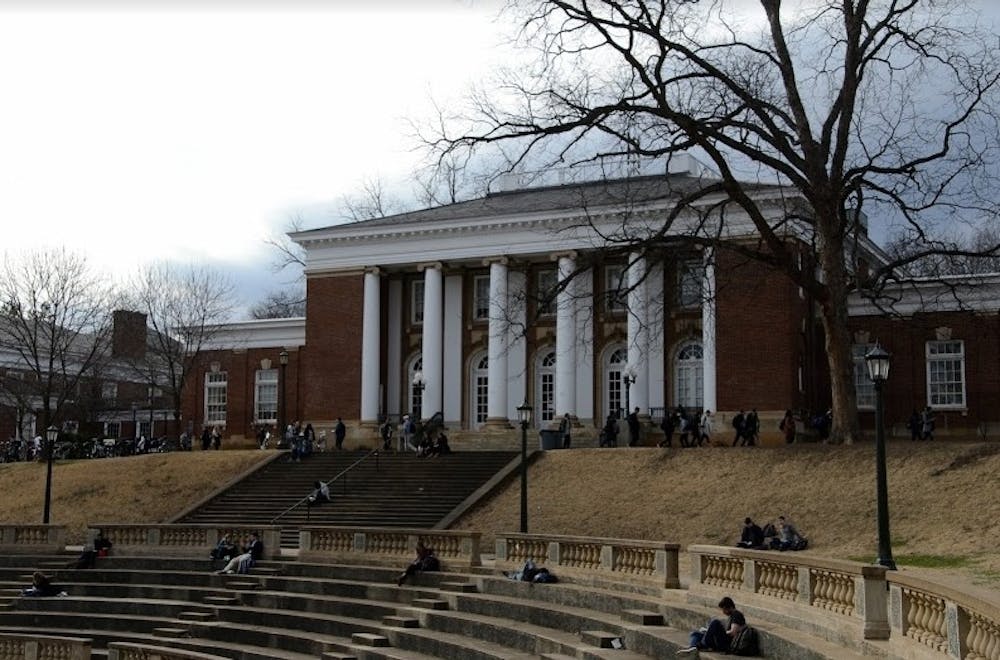Last October, the Carter G. Woodson Institute for African-American and African Studies became a full-fledged department in the College after years of appeals and requests by members of the institute. Since achieving departmental status, the institute has hired two new faculty members and seen an active increase in enrollment for courses.
The transition to a department was accelerated by the arrival of College Dean Ian Baucom — whose academic background includes African studies — in 2014. The Woodson Institute previously operated as a program due to tight budget restraints and a lack of resources.
Deborah McDowell, director of the institute and an English professor, said the transition to a department has given the institute more freedom to develop a unique curriculum with distinguished faculty members.
Within the last year, the Woodson Institute hired Prof. Kevin Gaines, who holds the Julian Bond Professorship in Civil Rights and Social Justice and is also jointly appointed in the History Department, and Asst. Prof. Tony Perry, appointed exclusively in the new department.
“Professor Perry’s appointment is the third of its kind for us—which means it is not a joint appointment,” McDowell said in an email to The Cavalier Daily. “It further solidifies the department’s autonomy to hire its own faculty members.”
The Woodson Institute — created in 1981 to enhance the research and teaching of African-American studies — was formerly required to partner with other departments in hiring faculty prior to becoming its own department. Candidates for a position in the Woodson Institute now go through one hiring process instead of two.
“Such autonomy is perhaps the single most important distinction separating an academic ‘program’ from a ‘department,’” McDowell said.
Perry — who began a predoctoral fellowship in the Woodson Institute in 2016 — teaches a new course that examines the relationship between enslaved peoples and the environment.
“I feel very fortunate — honored even — to be among the first full-time faculty in the new department,” Perry said. “The Woodson Institute already has an important legacy and to be at a point where we are building on that legacy and expanding things a bit and growing what has already been a very successful academic enterprise in terms of producing knowledge regarding African-American and African research and studies — it’s exciting.”
As the Woodson Institute continues to grow, enrollment in gateway courses have steadily increased, McDowell said. This fall, AAS 1010, “Introduction to African-American and African Studies I,” has 200 students enrolled — up from 120 last year at the same time. According to McDowell, the increased enrollment reflects the growing strength and popularity of the African-American and African Studies major and field of study, even for those who elect other majors.
“I have noticed an increased demand for courses that critically engage issues of race and inequality from a [United States] and global perspective,” Andrew Kahrl, an associate African-American Studies and History professor who serves as Director of Undergraduate Programs in the Woodson Institute, said in an email to The Cavalier Daily. “My course, ‘From Redlined to Subprime: Race and Real Estate in the US,’ has seen its enrollment jump rapidly in recent years, from 30 students in 2016 to over 80 students this semester.”
56 students have currently declared a major in the African-American and African Studies department, which is on par with recent years, according to Kahrl.
“We will continue to prioritize courses that have high student demand and plan to offer new courses that will appeal to a broad cross-section of undergraduate students, both majors and non-majors,” Kahrl said, adding that the Woodson Institute plans to offer a new 2000-level course on “Race and Sports in American Society” in the spring semester.
Professor Kwame Otu, who teaches the gateway introduction 1010 course, said students have become more aware of the conversations around race in Charlottesville after the white nationalist events of Aug. 11 and 12, which may have led to the increased enrollment in courses centered on race discussions and ethnic identity.
“I think it’s so important because of how Africans are written into history,” Otu said, referencing why students should take a course in the Woodson Institute. “I think it’s so important because here you are actually learning about the African experience in ways that you learn about in other courses, in the media, in every sphere of life, because the representation of Africans has always been very distorted.”
Since becoming a department, the Woodson Institute has also added an international footprint, offering the first January Term course in Ghana in January 2018.
Two faculty members distinguished themselves by earning competitive national awards — Assoc. Prof. Talitha LeFlouria received the Carnegie Award and Asst. Prof. Ashon Crawley obtained a Fellowship from the Institute for Sacred Music at Yale. The University’s Maxine Platzer Lynn Women’s Center will also give McDowell the 2018 Zintl Leadership Award this fall for her efforts in turning the Woodson Institute into a department.
The department will be conducting another faculty search this fall in the field of race and environmental justice as part of a college-wide cluster hire initiative in race and inequality, which also includes searches by the Psychology and Religious Studies departments, McDowell said.







